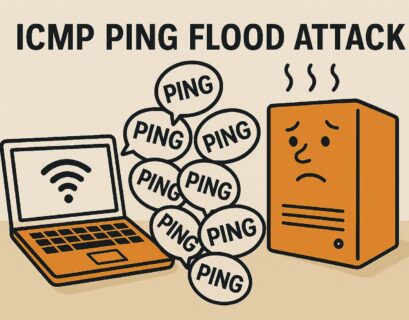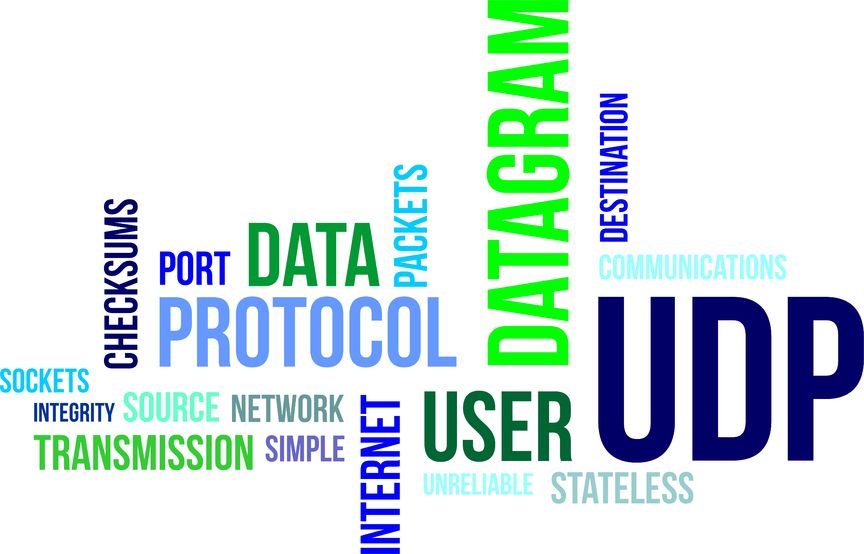DNS Monitoring can serve you and help you detect unwanted issues. As you probably know, the Internet would not function in such an easy and effortless way as we know it nowadays if the DNS (Domain Name System) had not been introduced back in the day. However, there are no perfect things, and unpleasant difficulties regarding DNS are possible to occur. Thankfully, now we can detect them quickly with DNS Monitoring. So, let’s explain a little bit more about it!
Table of Contents
DNS Monitoring explained
DNS Monitoring gives you the ability to manage and examine the performance of a DNS server. The main goal is to assist you with detecting server-side and client-side DNS issues. In addition, it guarantees the health of DNS servers by sending a DNS request. You are able to choose different query types depending on the DNS record you want to check, for example, A, AAAA, MX, NS, PTR, or CNAME. Then you specify a required expected response that is compared to the actually received response.
DNS Monitoring has a very important role in your network Monitoring service. Moreover, it ensures the safety and proper connection between the end-users and the website or service that they want to use. It is extremely useful when it comes to the fast detection of unpleasant issues or for recognizing potential security breaches. Additionally, it is helpful for stopping some popular malicious attacks. Thanks to the regular checks, you can effortlessly detect unexpected issues or localize DNS outages. As a result, you can prevent a large negative impact on your website or on the safety of your users that want to reach your services by detecting and resolving the problem fast.
Why is DNS Monitoring important?
The Domain Name System (DNS) is an essential part of the Internet. Yet, it was not designed with security in mind. For that reason, cybercriminals have developed ways to take advantage of its vulnerabilities. Therefore, DNS monitoring is vital for helping you protect your online presence and catch issues before they become significant problems. DNS monitoring gives you the ability to recognize several different DNS errors. The majority of them result from malicious attempts and could be a significant threat to your security. On the other hand, there are also communication flow interruptions. They compromise the functionality of your domain’s DNS resolution process and lower the traffic toward your site.
Ready for ultra-fast DNS service? Click to register and see the difference!Experience Industry-Leading DNS Speed with ClouDNS!
Configuration Errors
DNS Monitoring can detect errors like incorrect IP addresses and assure that outages are not prolonged. The less time your website or service is down, the less your traffic flow is interrupted. That way, you can maintain and increase your uptime, and every user that wants to reach your website (or service) will have that opportunity without any difficulties.
A configuration error can stop users from reaching your website and make it seem like their internet is not acting correctly. This could drive traffic away from your domain and meddle with your business.
DNS Spoofing (DNS poisoning)
DNS Spoofing, also commonly known as DNS poisoning, is a popular cyber threat that cybercriminals use. Recursive DNS servers hold the hostname data with all related DNS records for a particular amount of time (depending on the TTL). That way, they operate more efficiently because they do not repeat the resolution process for the same IP address. However, it also leads to vulnerabilities.
Cybercriminals insert fraudulent data into the DNS cache on the server, like fake IP addresses. Commonly, that is achieved due to viruses and malware. As a result, the users’ requests are directed to a malicious phishing website, which looks similar to the original one. There they type their sensitive information, such as passwords, credit card details, etc. A lot of people do not even notice that they have been directed to malicious pages. No one wants to put its clients at risk of phishing schemes. Additionally, compromising user information can seriously impact your business.
DDoS and DoS Attacks
Distributed Denial of Service (DDoS) and Denial of Service (DoS) attacks are massive cyber threats that are able to bring down your server. They involve large amounts of fake traffic with the main goal of overcoming your resources and making your website or service unavailable for regular users. It is important to mention that the earlier the attack is detected, the more quickly it can be handled. Therefore, it is best to stop it before the DNS records on the server become weaponized by the cybercriminals.
DNS Tunneling
DNS Tunneling is another cyber threat that attackers commonly use. Typically, DNS servers handle a massive amount of traffic, and there are no security measures regarding the exchanged data packets. DNS Monitoring can help detect tunneling and serve to prevent any further data from being exchanged. This is an essential addition to your existing security measures.
DNS outage
DNS outage does not allow your users to connect and reach your website or service. It is possible to last just several minutes, but it could continue up to several hours or even days. So you can probably imagine how seriously it can affect your business and services. With DNS Monitoring, you can easily find and understand where the issue is coming from and quickly fix it.
How does it work?
You can find DNS monitoring as a part of ClouDNS Monitoring service. It works by regularly checking if the DNS server responds to all DNS queries. With such type of check, you can initiate DNS queries for a desired hostname and query type – A (for IPv4), AAAA (for IPv6), MX, NS, PTR, or CNAME. There are two scenarios that follow once you set your expected response.
- The check is marked UP, when the received response is equal to the required expected one.
- The check is marked DOWN, when the received response is not equal to the required expected one.
The DNS monitoring check validates the conditions of DNS servers by sending a DNS request and comparing the received response with the expected one.
You can also take a look at our article about DNS monitoring Checks!
Why do you need it?
DNS monitoring is necessary because DNS performance is essential to your network, servers, and applications. Thanks to the DNS servers, your website or service works effectively and efficiently, yet they should be monitored for vulnerabilities. In case you neglect their adequate supervision, you may compromise both the security of your business and your clients.
With the ClouDNS Monitoring service, you can keep an eye on your servers and quickly detect any issues. As you know, timing is crucial, so the fast resolving of the issues is going to guarantee the integrity of your servers. So, as a result, everything should continue operating smoothly.
Benefits of DNS monitoring
DNS monitoring is a critical component of any organization’s network management strategy. By monitoring DNS traffic, organizations can proactively identify and address issues before they escalate. Here are some of the main benefits of the implementation of DNS monitoring:
- Improved Server Availability
It can help improve server availability by identifying and resolving issues that can cause downtime or service disruptions. For example, DNS servers can be vulnerable to hardware or software failures, network connectivity issues, and cyber attacks, which can affect the availability of websites and other online services. DNS monitoring services can detect and alert tech teams of problems before they escalate, allowing them to take proactive measures to resolve them.
- Improved DNS Server Troubleshooting
DNS monitoring can help improve DNS server troubleshooting by providing visibility into the DNS infrastructure and the flow of DNS queries. Tech teams can use DNS monitoring tools to identify blockages, misconfigurations, and other issues affecting the performance of the DNS server. The information helps them troubleshoot and resolve issues more quickly, minimizing downtime and service disruptions.
- Faster Detection of Outages
DNS monitoring can be useful for detecting outages faster by providing real-time visibility into the DNS infrastructure. It can alert tech teams about issues, such as DNS server failures or network connectivity problems, as soon as they occur. That way, IT teams can quickly identify the root cause of the problem and take action to restore services.
Comparison with other monitoring techniques
DNS monitoring is a specialized approach focusing on the health and security of the Domain Name System, which is crucial for translating domain names into IP addresses. While DNS monitoring is vital, it’s one part of a broader network monitoring strategy that includes other techniques such as network performance monitoring, application monitoring, and security information and event management (SIEM). Here’s how DNS monitoring compares with other monitoring techniques:
- Network Performance Monitoring (NPM): NPM tools focus on the performance and availability of networks and network components (like routers and switches). While NPM can identify network congestion and hardware failures that indirectly affect DNS services, DNS monitoring directly assesses DNS health, ensuring that domain name resolution processes are working as expected.
- Application Monitoring: This technique focuses on the performance and availability of specific applications. It can help identify issues within an application that may impact user experience but doesn’t directly monitor DNS processes. DNS monitoring complements application monitoring by ensuring that users can reach the applications in the first place.
- Security Information and Event Management (SIEM): SIEM systems collect and analyze aggregated log data from various sources to detect and respond to security incidents. While SIEM can identify security breaches that may indirectly affect DNS services, DNS monitoring provides specific insights into DNS-related security threats, such as DNS spoofing or tunneling attacks.
DNS Monitoring Best Practices
To ensure effective DNS monitoring, it’s essential to follow a set of best practices that enhance performance, security, and reliability. Here are several recommendations to keep in mind:
- Monitor All Essential DNS Records: Keep an eye on crucial records like A, AAAA, MX, NS, and TXT. Regular checks ensure they are correctly configured and operating as expected.
- Set Up Alerts for Critical Events: Configure real-time alerts to notify your team of any anomalies, such as DNS outages, slow query responses, or unexpected record changes. Prompt action minimizes downtime.
- Schedule Regular Checks: Perform DNS health checks at frequent intervals. Scheduling periodic queries helps maintain consistent visibility into server performance and detect issues early.
- Analyze Response Times: Monitor DNS query response times to identify bottlenecks or delays that could impact user experience. Slow responses might indicate server overload or misconfiguration.
- Leverage Redundancy: Use secondary DNS servers to ensure high availability. DNS monitoring can confirm that backup servers are functioning properly and ready to handle traffic.
- Keep DNS Records Updated: Outdated or misconfigured records can cause connectivity issues. Regular audits and monitoring can prevent such problems.
By implementing these best practices, organizations can safeguard their DNS infrastructure, improve uptime, and enhance user satisfaction.
Conclusion
So, now you know what DNS Monitoring is and why it is so important for your security. First, there are different criminal attempts that could be prevented when you keep an eye on your servers. Additionally, it is beneficial for simplifying the process of finding and fixing network issues. Finally, it helps you prepare and not be surprised in such situations.






